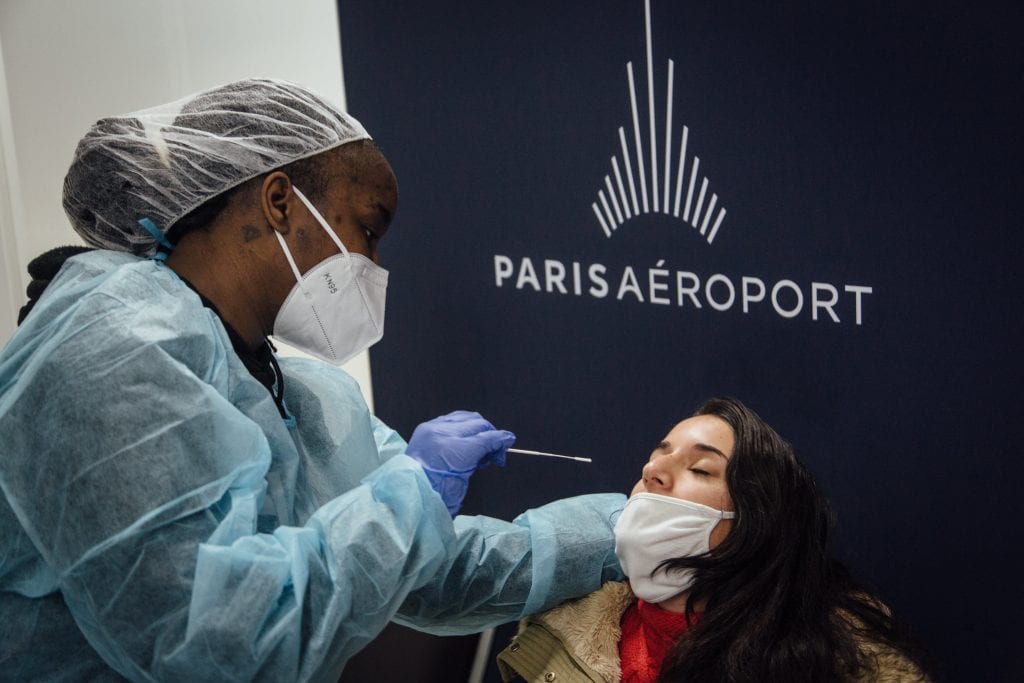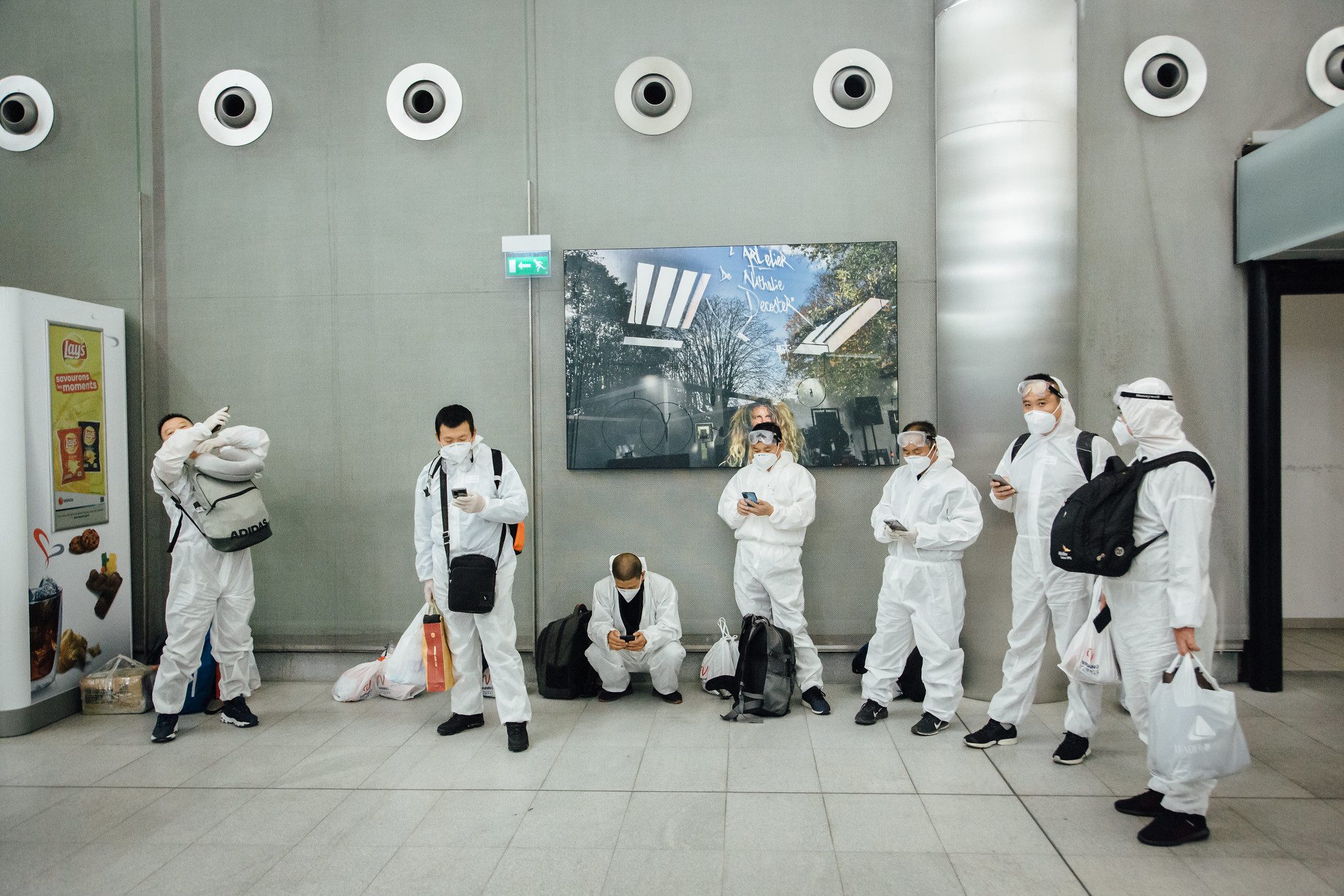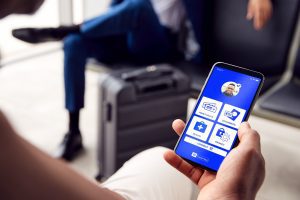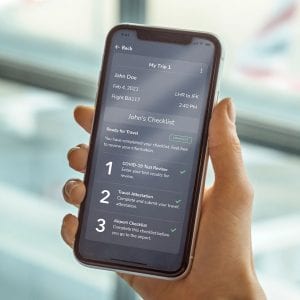Skift Take
A passport tends to imply freedom of movement, but with so many options and fast-changing restrictions, travelers need to do their homework before choosing one.
Digital health passports are taking off as technology companies and even governments start developing them. But as we’ve seen with disparities around testing and vaccination regulations, too many of these passports could complicate things.
In this explainer, we outline some of the passports available, examine how they work and explore the concerns raised so far.
What are Digital Health Passports, and Who’s Providing Them?
A digital health passport is an app, or online certification, that displays a traveler’s Covid test result or vaccination record. It will confirm to airline staff or border control that a particular individual is at a low risk of acquiring or transmitting the virus.
They’re a viable method of checking who’s eligible to enter a country, depending on that country’s recognition of the type of passport platform, and type of test or vaccination. They may also help pave the way for people to return to their offices.
As early as April last year, some airlines recognized the need for testing, including Emirates which set up a testing facility with the Dubai Health Authority. While airlines and airports still offer testing facilities, digital health passports represent the next step, and are designed to be more universal.
Join Us at Skift’s Online Travel and Distribution Summit on February 17
The first digital health passports to emerge included ICC AOKpass, CoronaPass and CommonPass.
Other passports include the International Air Transport Association (IATA) Travel Pass, Mvine-iProov passport, VeriFLY, V-Health Passport, Passport for COVID and CCI Linux. Even Ticketmaster is reportedly building one to help revive the live events industry.
Online travel agents may also embed vaccination results into booking confirmations, with Webjet reportedly building that functionality to record customers’ immunisation status in its systems, in anticipation that vaccination will be mandatory for anyone traveling abroad, in line with the Qantas CEO’s thinking.
We’re now starting to see multiple collaborations, with airlines and countries choosing different passport partners.
How do They Work Exactly?
The premise of a digital health passport is simple. A traveler downloads an app on their smartphone, they either connect that app with their travel provider or upload their itinerary, and the app provides guidance for what verifications they need to travel. Once those steps are met, say getting a negative Covid-19 test at a certified testing center, and the results are accepted, the traveler will receive a QR code, or other proof, verifying they are safe to fly.
But that’s only the beginning. IATA plans to offer airlines the option to integrate its Travel Pass into their own app — allowing a traveler to bypass downloading a stand alone app — among other functionality in the first release due out in early March, the organization’s senior vice president of airport, passenger, cargo and security Nick Careen said Wednesday.
A second release, due out in April, will add functionality to include children or minors, multiple people in a group, and potentially even search functions in Travel Pass, he added. Additional languages will also be added.
Are These Passports Accepted Everywhere?
Acceptance of digital health passports is limited.
Aruba is the only country to officially sign on to a platform, opting for CommonPass. The country will recognize it along with the homegrown Aruba Health App beginning in February. Denmark is reportedly developing its own digital “vaccine passport”.
However, it is widely believed that most countries will eventually recognize multiple platforms as acceptable digital health passports, in the same way they purchase different vaccines. One step towards national recognition could be the inclusion of domestic travel requirements, something Careen said IATA hopes to include in Travel Pass later this year.
Airlines are similarly taking a Swiss approach to the platforms. United has trialled CommonPass on flights between London and New York, and is also part of the airline advisory group for Travel Pass. The Chicago-based carrier’s participation comes even as it integrates some aspects of a digital health passport into its own app following the addition of Covid testing requirements for all international arrivals in the U.S.

A passenger is tested at Roissy Charles de Gaulle International Airport. Picture: Cyril Marcilhacy/IMF/Flickr
British Airways also tested CommonPass, along with other travel agency groups.
Singapore Airlines is testing the IATA Travel Pass, with IAG, Emirates, Etihad Airways and Qatar Airways to follow. American Airlines has made the VeriFLY app available for travelers flying into the U.S., while from Feb. 4 British Airways will be the first airline in the UK to trial it for customers flying from London to the U.S.
It’s important to note that some carriers will only accept their affiliated passport for incoming flights only.
Is the Data Safe?
As with any system that stores sensitive data, how these passports preserve privacy is under the microscope. It’s the number one concern, according to a recent BCD Travel webinar.
The ICC AOKPass and IATA TravelPass use blockchain technology. This has advantages because there is no central database that could be hacked to access personal information, and it also means the app providers do not collect personal and medical data.
VeriFLY, which is being offered by identity assurance technology company Daon, will use biometric authentication.
Other providers will have different approaches, but on their respective websites it tends to be the principal area of promotion. The V-Health Passport, for example, describes a trademarked VCode that has 2.2 quintillion secure VCode image variations (roughly 300 million per person on the planet).
Other considerations that might later emerge may surround immunoprivilege, according to medical journal The Lancet, which said there is a risk digital health passports “could be ripe for both corruption and implicit bias.”
Could These Passports be the Answer to Restarting Global Travel?
Yes and no. The passport technology is gaining traction with airlines and governments, but they’re very much in the pilot phase. Eventually more governments will align over their choice of choices of provider, and travelers will be less confused.
A survey carried out by advocacy organization Travel Again found 75 percent of leisure and business travelers would be willing to take multiple Covid tests before and during travel, and share their results to resume traveling without restrictions — so there’s more work need on the remaining 25 percent,
And some countries are still not sure about vaccines, according to BCD Travel. A survey found that while about 80 percent of the population in countries such as China, Brazil and Mexico were happy to be vaccinated, others are more wary.
Just over 50 percent of South Africans were prepared to have injections, while Russia and France came in at around 40 percent, based on a survey from IPSOS and the World Economic Forum in December last year. The main worries are side effects (48 percent), followed by a lack of effectiveness (18 percent).
The technology is there, so too is a willingness to collaborate. But much depends on more borders reopening, the uptake of vaccinations at scale and more global standards for the passports.
Register Now For Skift’s Online Travel and Distribution Summit on February 17
The Daily Newsletter
Our daily coverage of the global travel industry. Written by editors and analysts from across Skift’s brands.
Have a confidential tip for Skift? Get in touch
Tags: airlines + transport, american airlines, bcd travel, coronavirus, covid-19, digital health passports
Photo credit: A group of Chinese tourists wear full protective suits against the COVID-19 virus wait at Roissy Charles de Gaulle Airport. Cyril Marcilhacy/International Monetary Fund / Flickr


